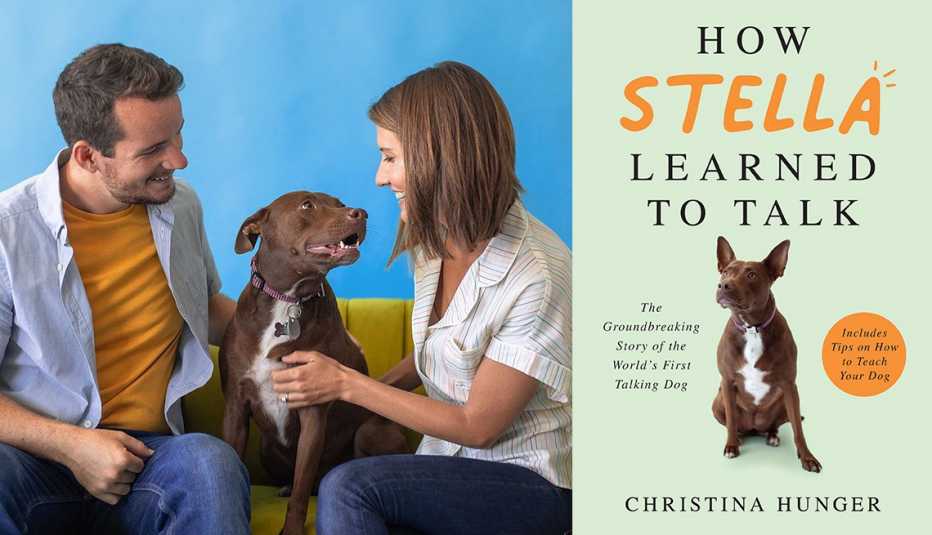AARP Hearing Center


When Christina Hunger is curious about what her dog, Stella, wants, she just asks her — or, more often, Stella simply tells her: “Come walk.” Or “Stella eat."
How? Hunger, a speech-language pathologist, has affixed to a board on her floor several dozen programmable buttons with words recorded on them. Stella has learned to press the appropriate buttons with her paw in order to express her feelings and desires.
Hunger writes about Stella's jaw-dropping achievements in a new book, How Stella Learned to Talk: The Groundbreaking Story of the World's First Talking Dog (May 4). She describes how she came up with the idea in 2018, soon after she and her then-boyfriend (now-husband) Jake adopted an adorable Catahoula (a breed from Louisiana) puppy they named Stella. While working with children who have limited verbal speech abilities, Hunger often used what's known in her field as augmentative and alternative communication (AAC), which incorporates adaptive tech for language development, similar to the programmable buttons. Maybe Stella could learn the same way, Hunger thought.
Turns out she could — in a big way.
It was remarkable enough when Stella learned to press the “water” button when she was thirsty, but then the puppy began using it when she wanted to go to the beach — a different kind of water. She later pressed “water” when she saw Hunger watering her plants. More recently, Stella got wet playing in the snow, came inside, and said “water."
Stella also uses “love you” to express affection, and has learned other conceptual words, like “good.” She's even said, “Good Jake walk,” after Jake took her for an extra-long walk.
"Stella tells us when she doesn't like something, she tells us when she's mad, or when she wants to do something different than what we're currently doing,” Hunger said in a phone interview from her home in Illinois. “I think the complexities of [dogs'] thoughts and their desires is something that would be really surprising to a lot of people."



































































More on entertainment
Senior Living Facilities Call In the Dogs to Sniff Out COVID-19
Studies show the canine sense of smell can detect the coronavirus, plus residents enjoy the visit
The Cicadas Are Coming. Don't Let Your Dog Eat Them
These insects may be tasty, but they'll give your pet a tummy acheLasting Power of a Dog's Love Revealed in Short Film
One family's goodbye to their beloved Rottweiler reveals the bond between pets and owners